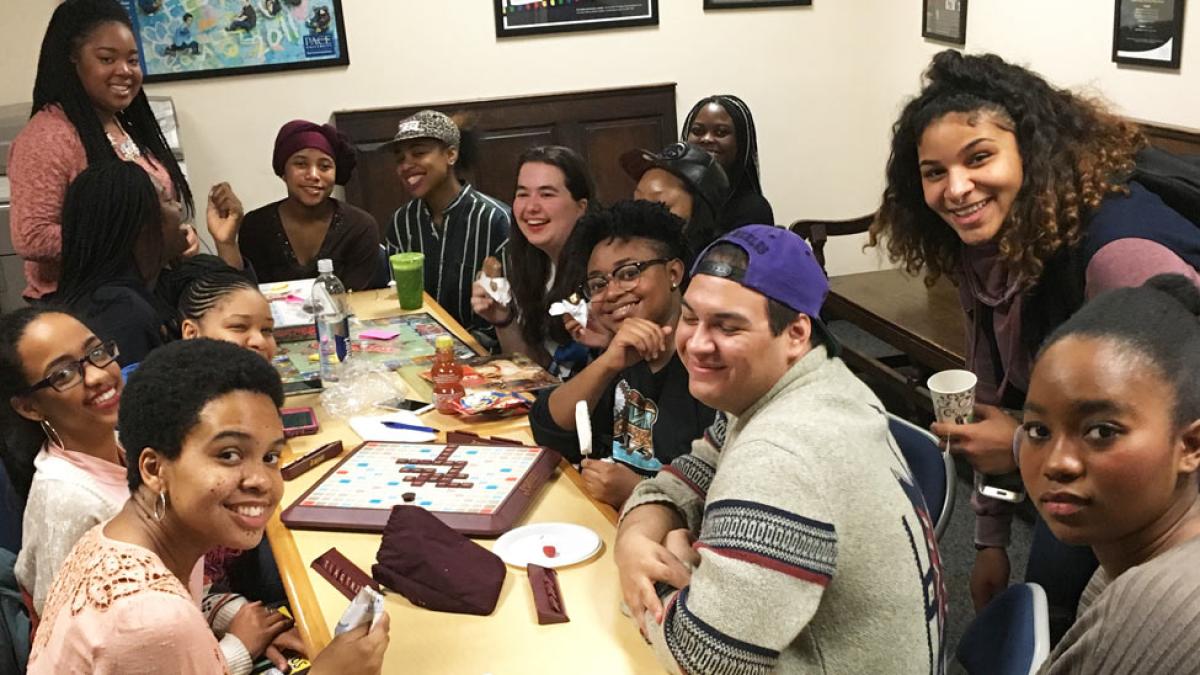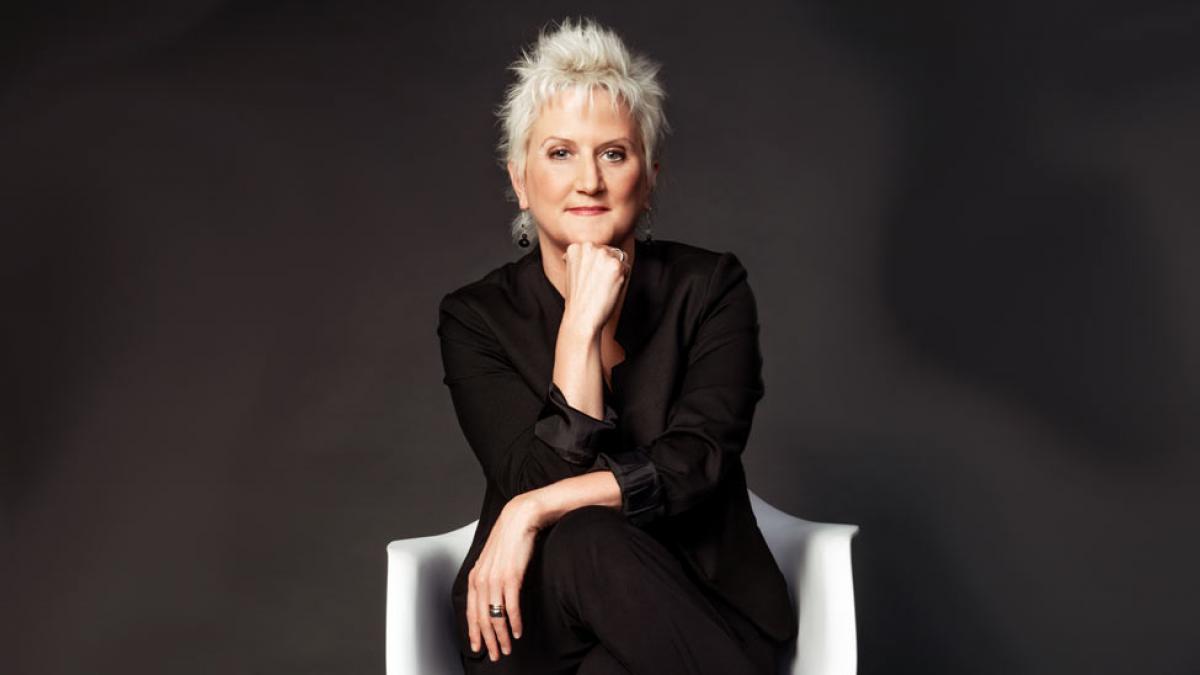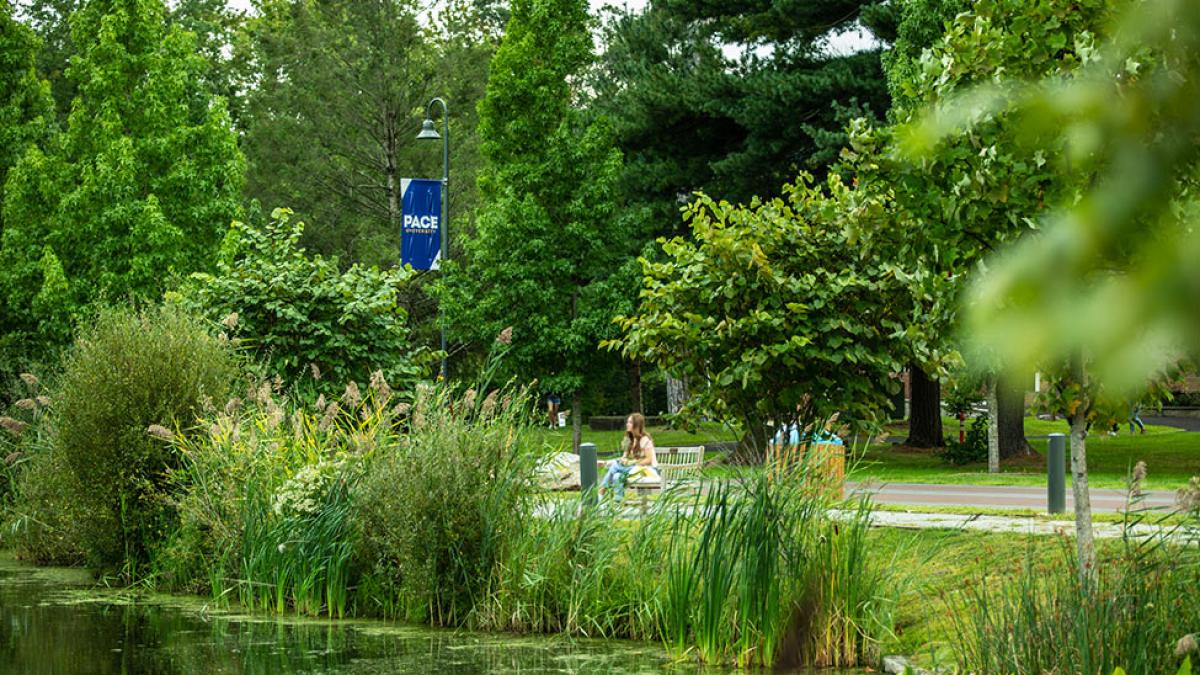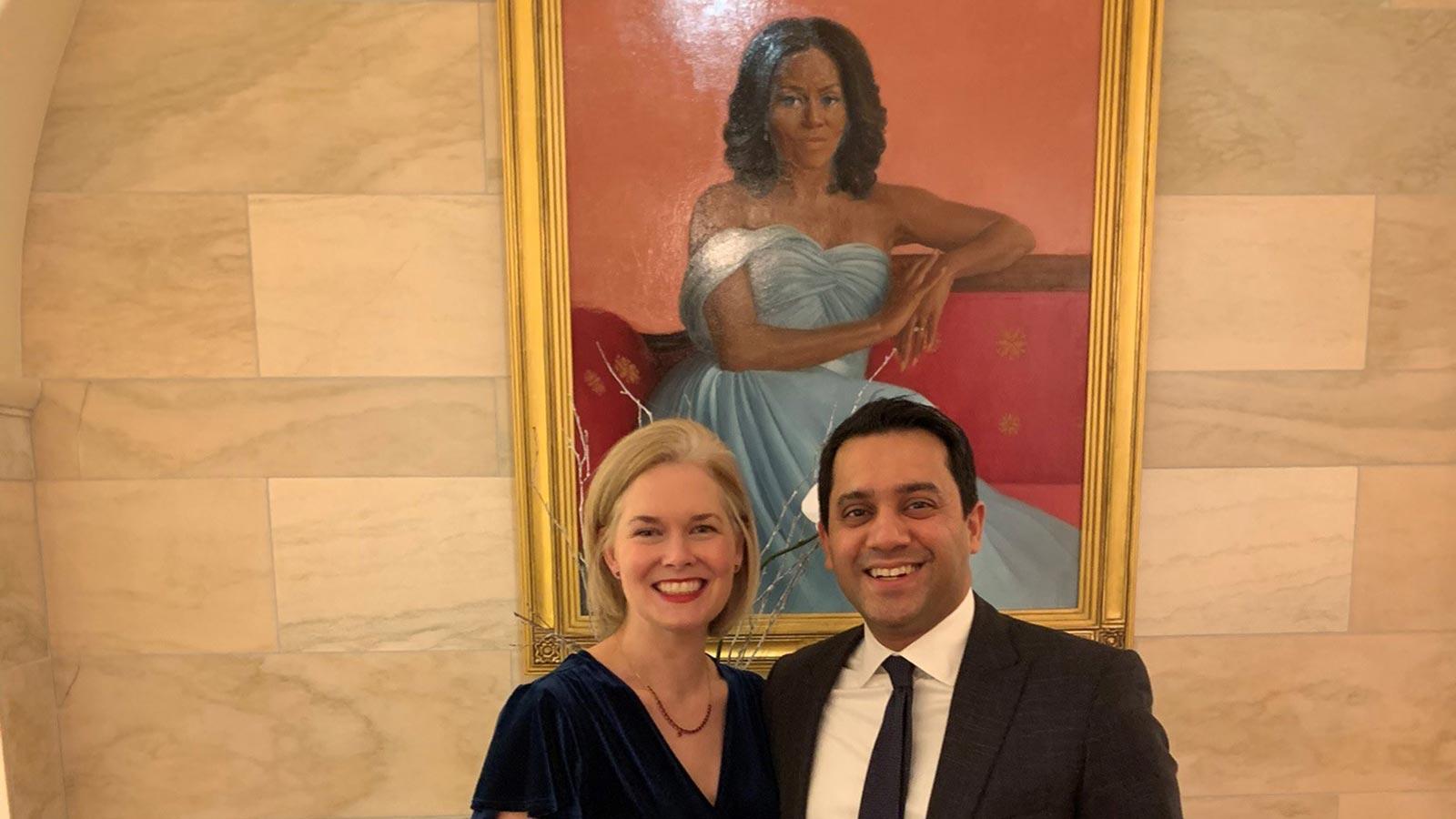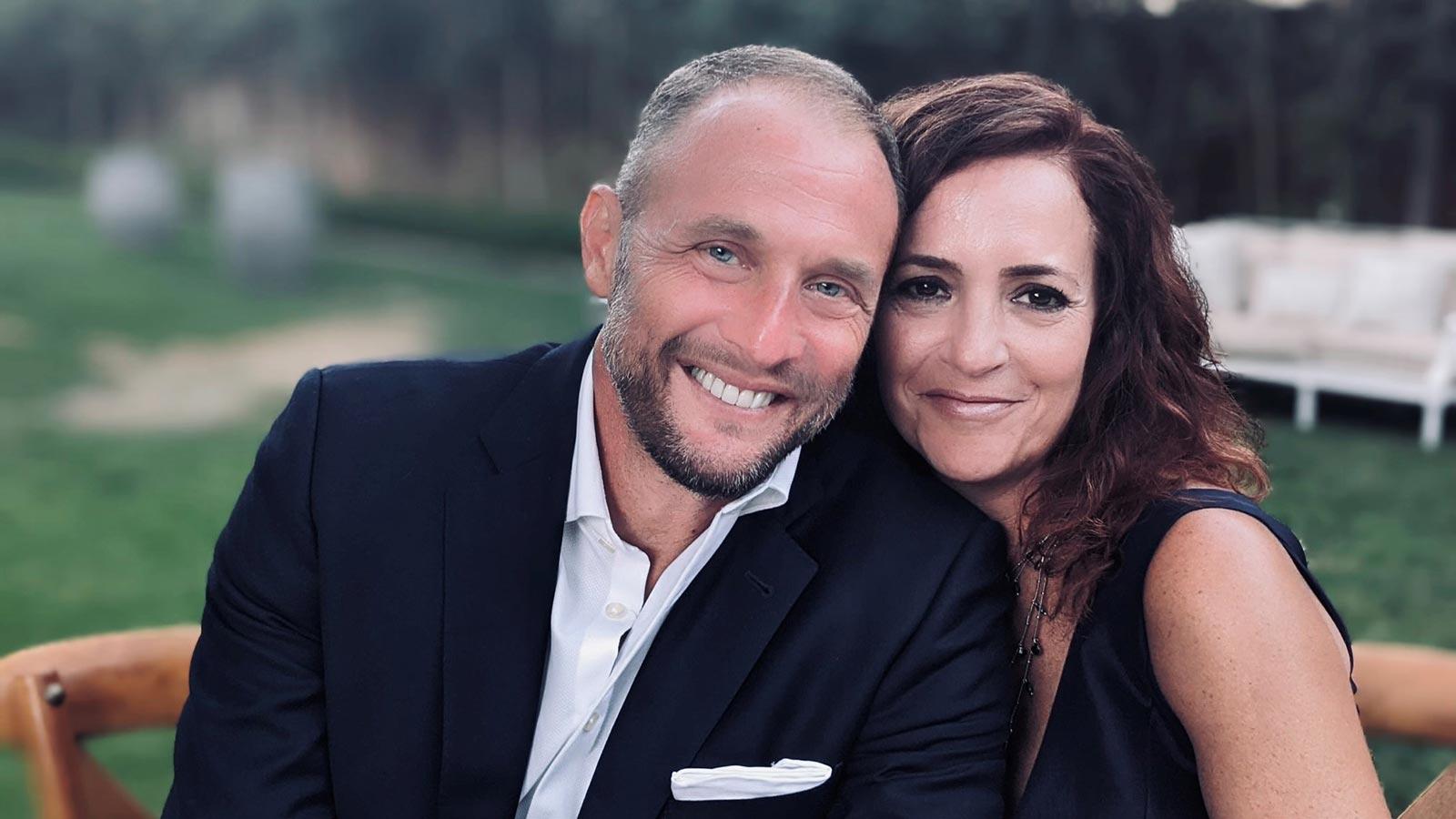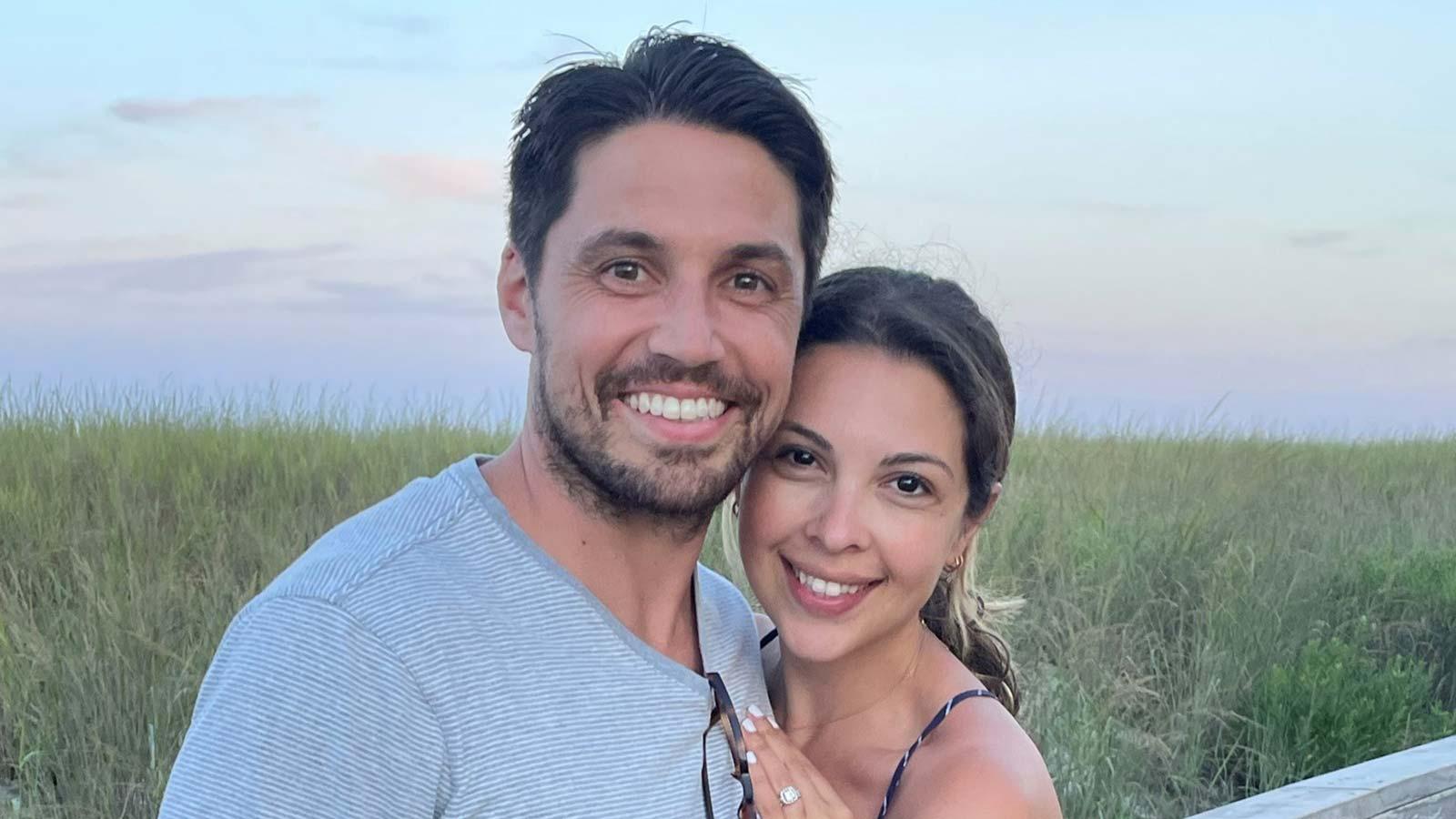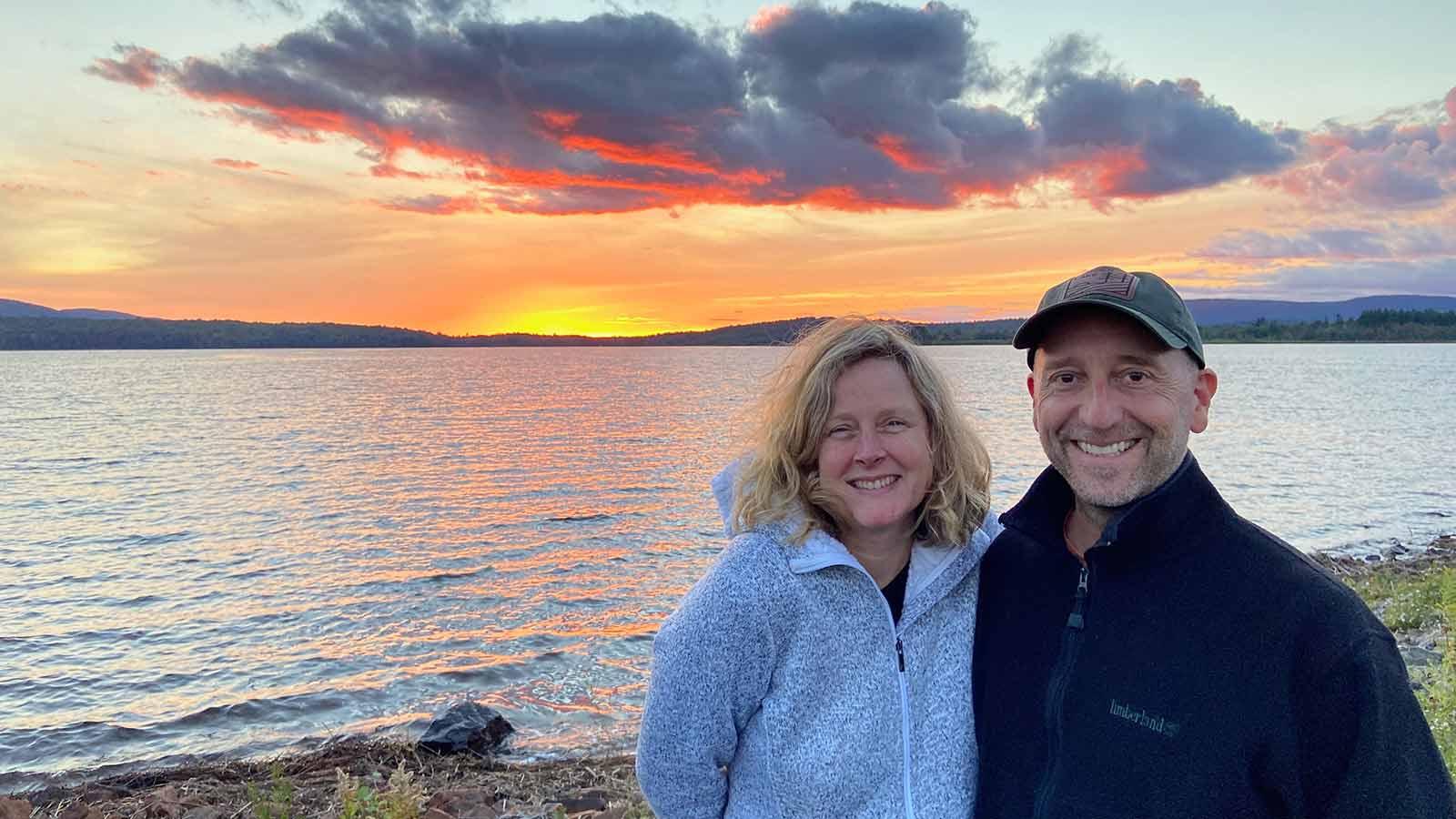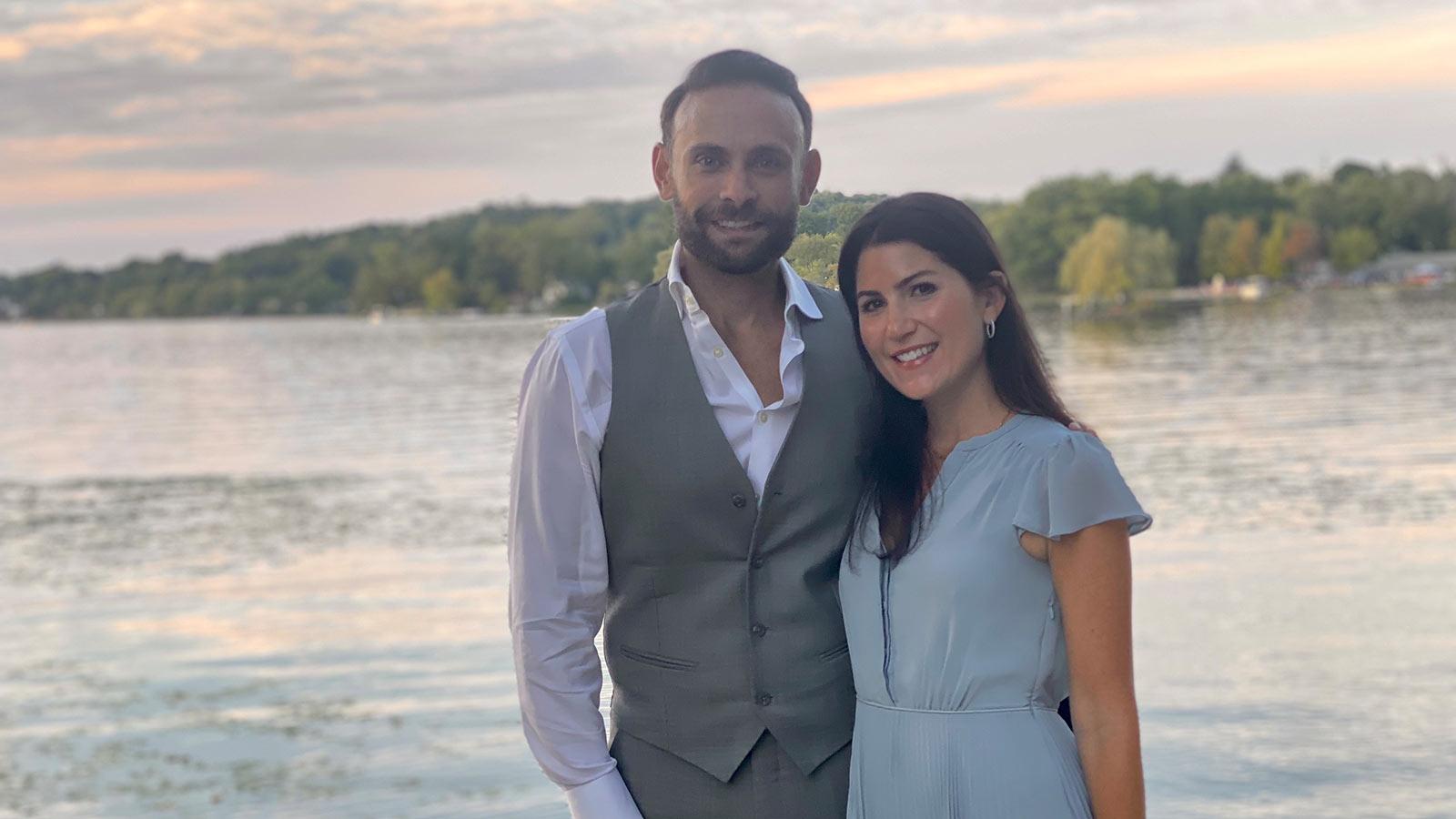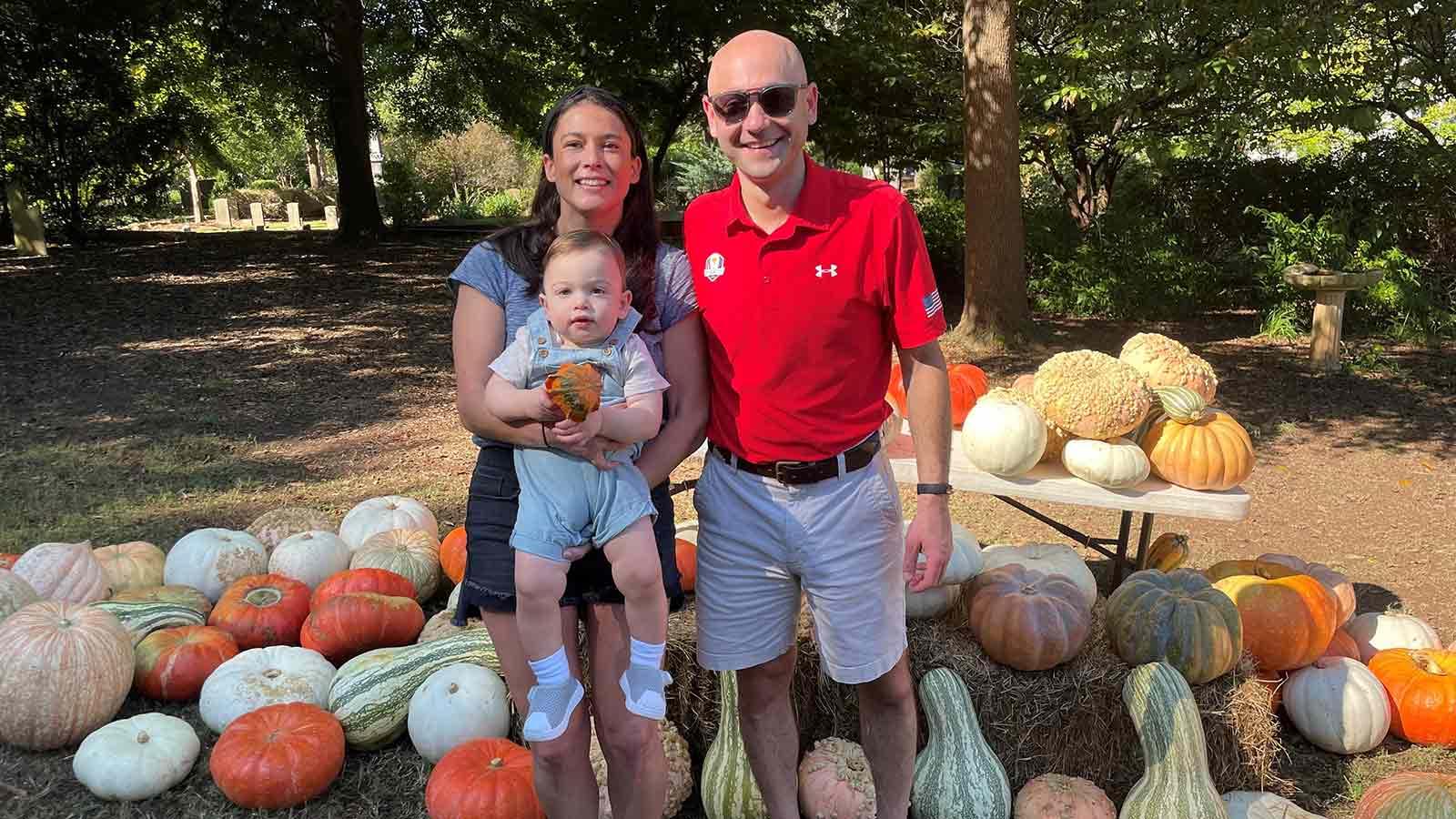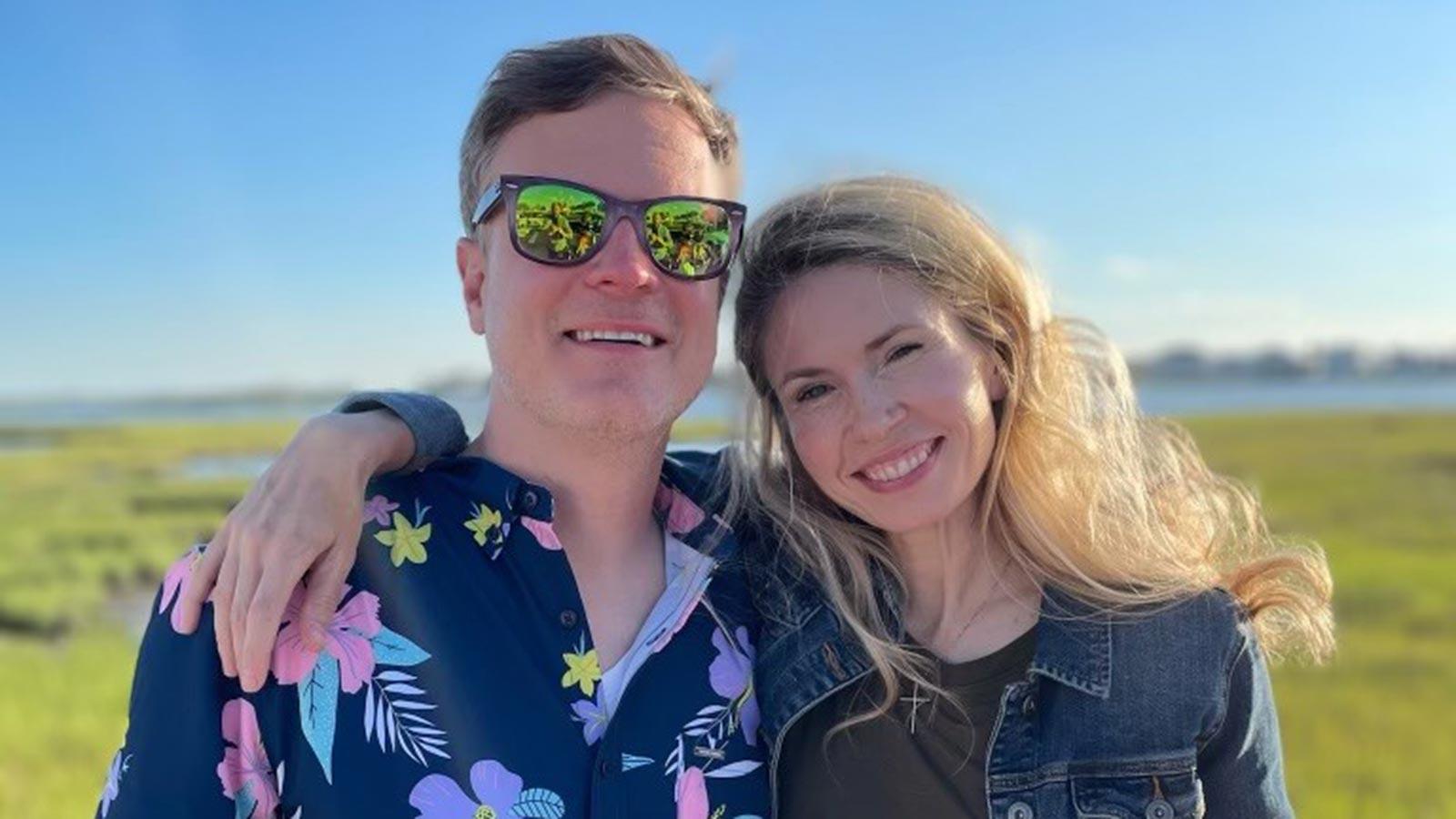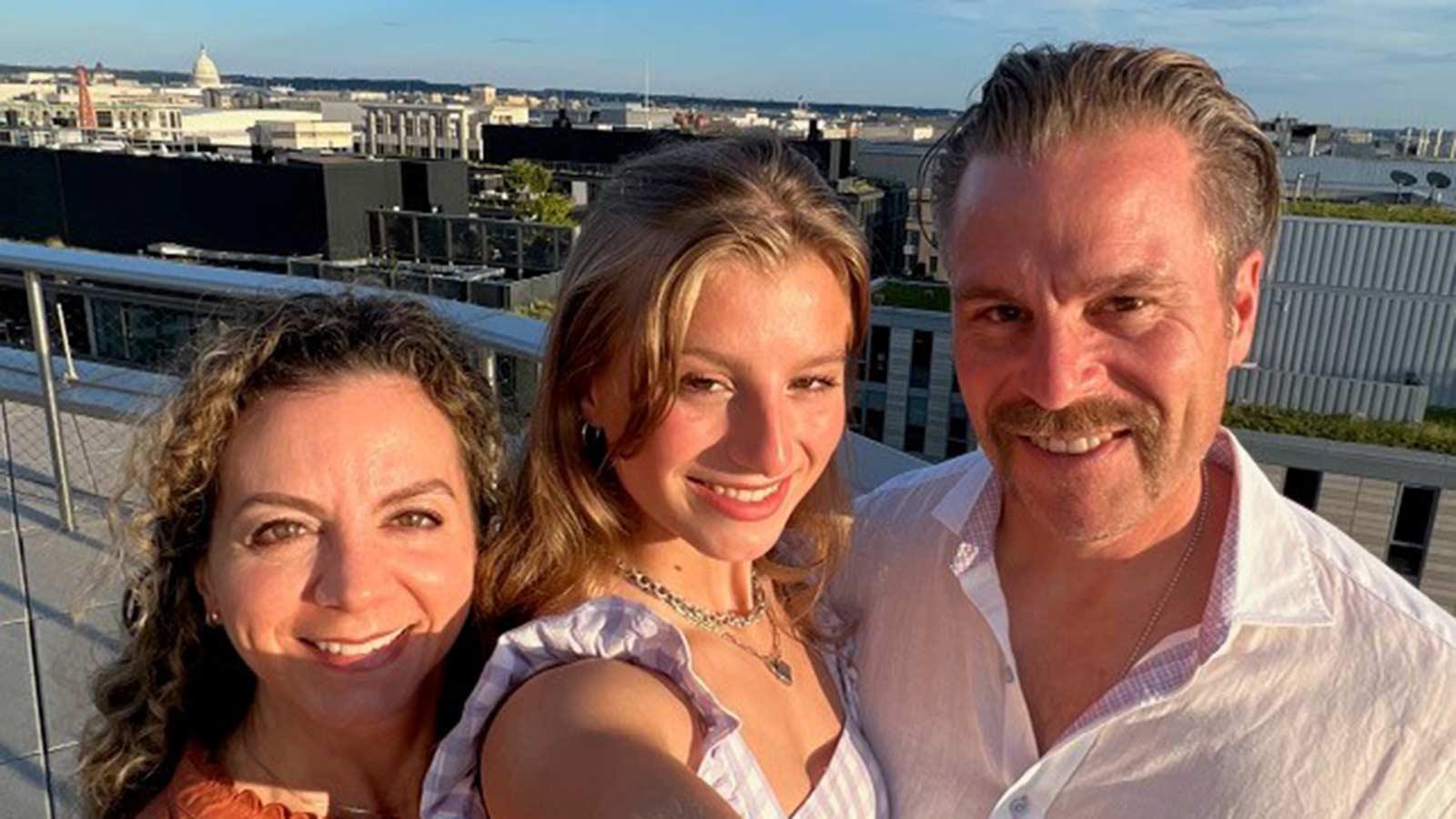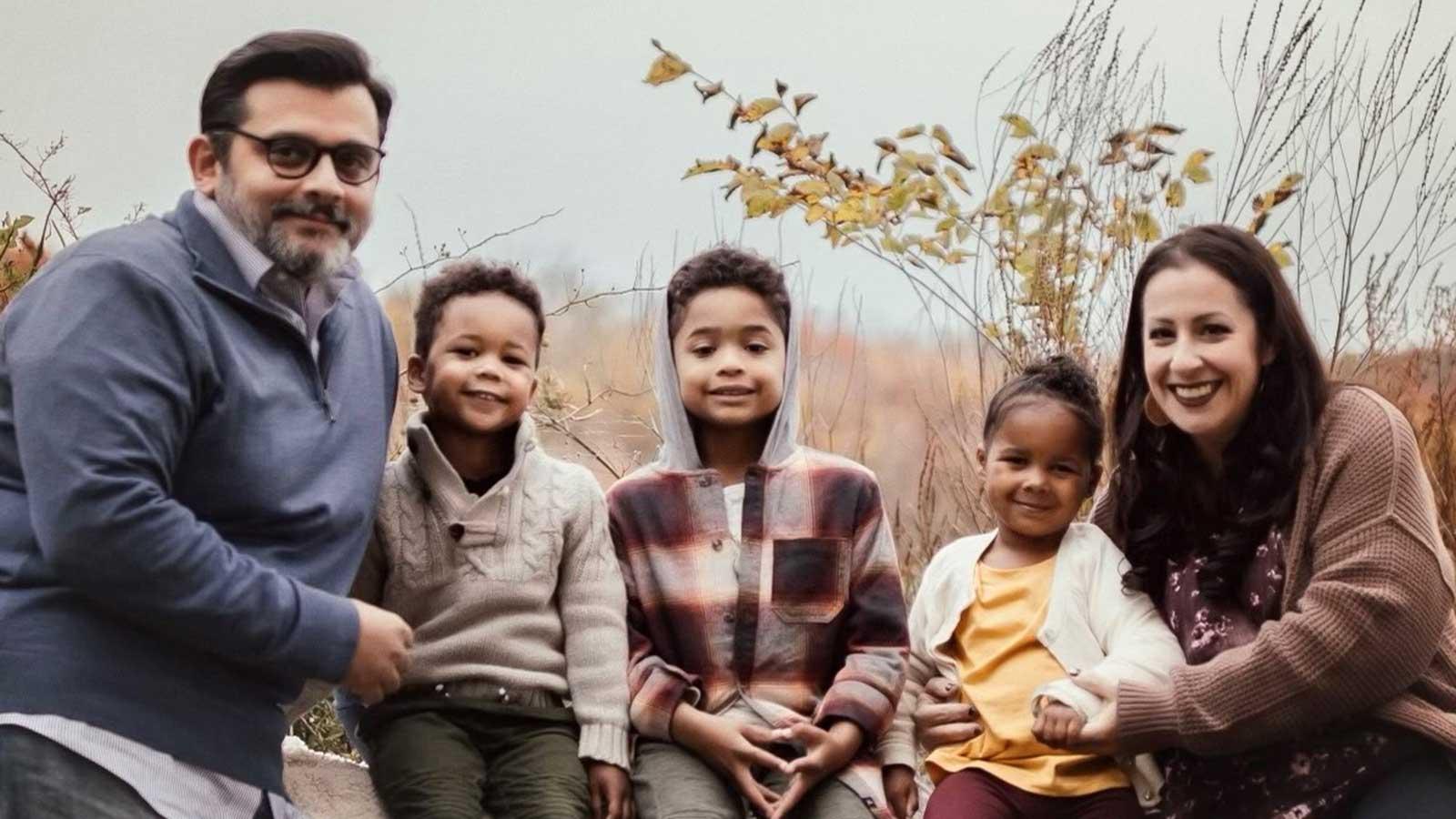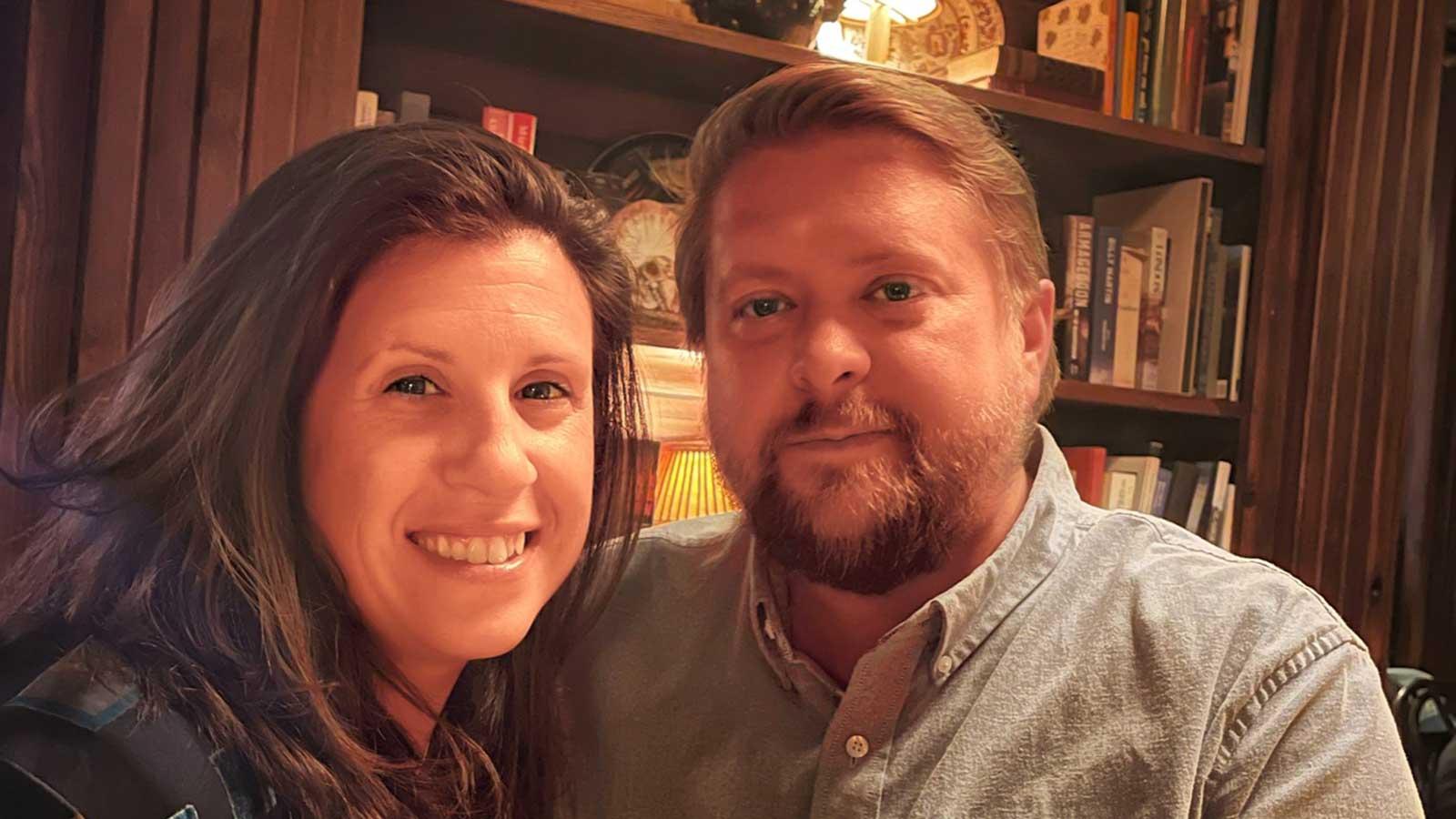Across the country, nearly 40 percent of college students report going hungry, and 52 percent have utilized food pantry services at some point. At Pace, we’re working hard to help offset food insecurity on our campuses and we need your help to do it!
Pace's Food Pantries
Community led food pantries have been supporting Pace Community members facing food insecurity for many years. See the options in Westchester and New York City.

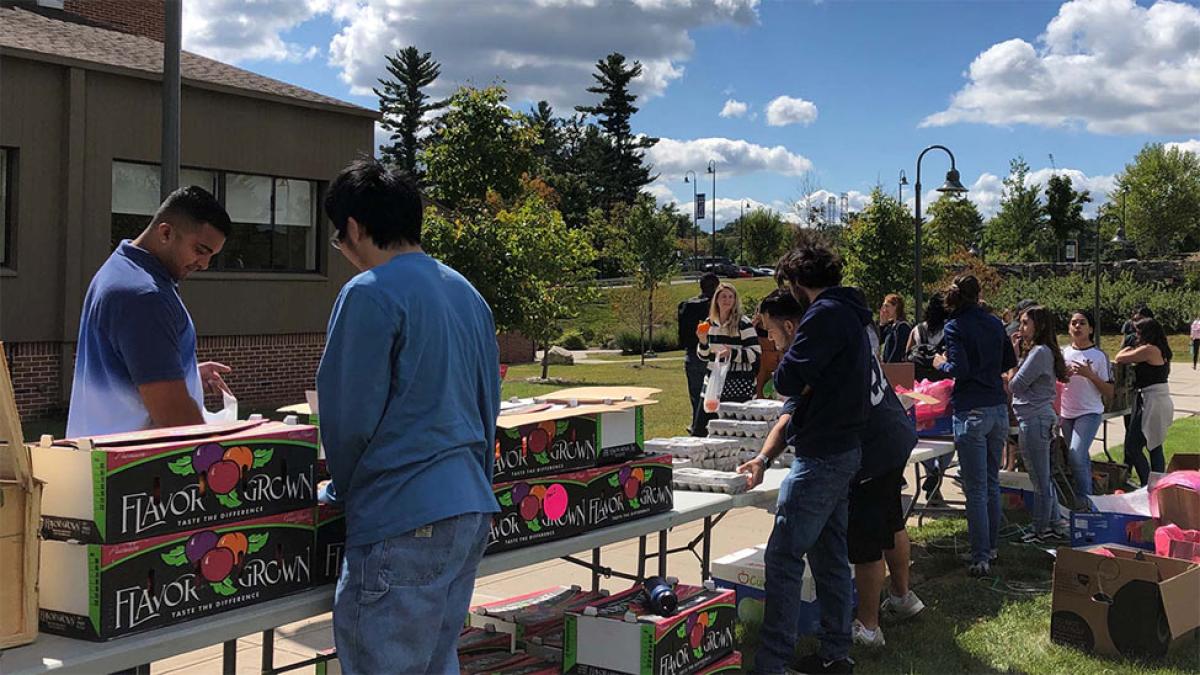
Fare Trade launched early in 2022, but food insecurity had not gone unnoticed or unaddressed at Pace before its formation. At both the New York City and Westchester campuses, community-led food pantries have been offering support for years.
On the New York City Campus, director of the Office of Multicultural Affairs Denise Santiago and a handful of student volunteers offer twice-monthly pick-ups of grocery boxes, containing up to two weeks of food. Provisions, a Bhandari Jain Family Food Pantry, opened in 2019, and today 250 guests utilize the pantry, many of whom belong to the Pace Active Retirement Community.
According to Santiago, the help Provisions offers has an impact on everyone involved. “It brings a lot of joy,” she says. “And then people send us these wonderful emails, really thanking us. We don’t do it for the thanks, but it just humbles you.”
The Pace Pleasantville Mobile Food Pantry has been feeding the Westchester community since 2018. The pantry itself is the product of an award-winning partnership with the nonprofit Feeding Westchester. Feeding Westchester covers food costs, and Pace staff and students volunteer their time to ensure that the 100 or so people who utilize the pantry once a month can have access to nutritious food.
“It’s not just about feeling good that we’re helping our community members, but also normalizing the conversation around food insecurity."
Heather Novak, director of the Center for Community Action and Research, took over as coordinator for the pantry this year. She is happy to see the community using the pantry, but what she really appreciates are the conversations happening about food insecurity. “We want to be able to look at it from a larger perspective,” she explains. “It’s not just about feeling good that we’re helping our community members, but also normalizing the conversation around food insecurity. So when someone says ‘it’s good we have so many people using the pantry’, the conversation doesn’t end there.”
Launched in Spring 2023, Pace University’s Office of Residential Life has partnered with Feeding Westchester, a nonprofit organization focused on addressing hunger and food insecurity in the local community, to install a permanent free food pantry on campus. Located in the lobby of Elm Hall, the Pace Market provides access to a variety of foods, dry goods, and prepackaged meals. This is in addition to the pre-existing Mobile Markets, which are held monthly.
Get involved through non-perishable food donations. Email Wen Xi in Westchester at wxi@pace.edu or Denise Santiago in NYC atdsantiago@pace.edu for details.
More from Pace
Through the U.N. Millennium Fellowship, three Pace students are innovating the way food insecurity is addressed on campus with the Fare Trade program.
Shades has been providing community and support to women and femmes of color through mentorships, outings, and discussion groups for over 15 years. Learn about its impact from coordinator Denise Santiago, PhD, and alumni facilitator Nina Riley '22.
Leading the Way in Cybersecurity
With a $3.8 million grant from the National Science Foundation, Seidenberg is primed to train the next generation of cybersecurity leaders.
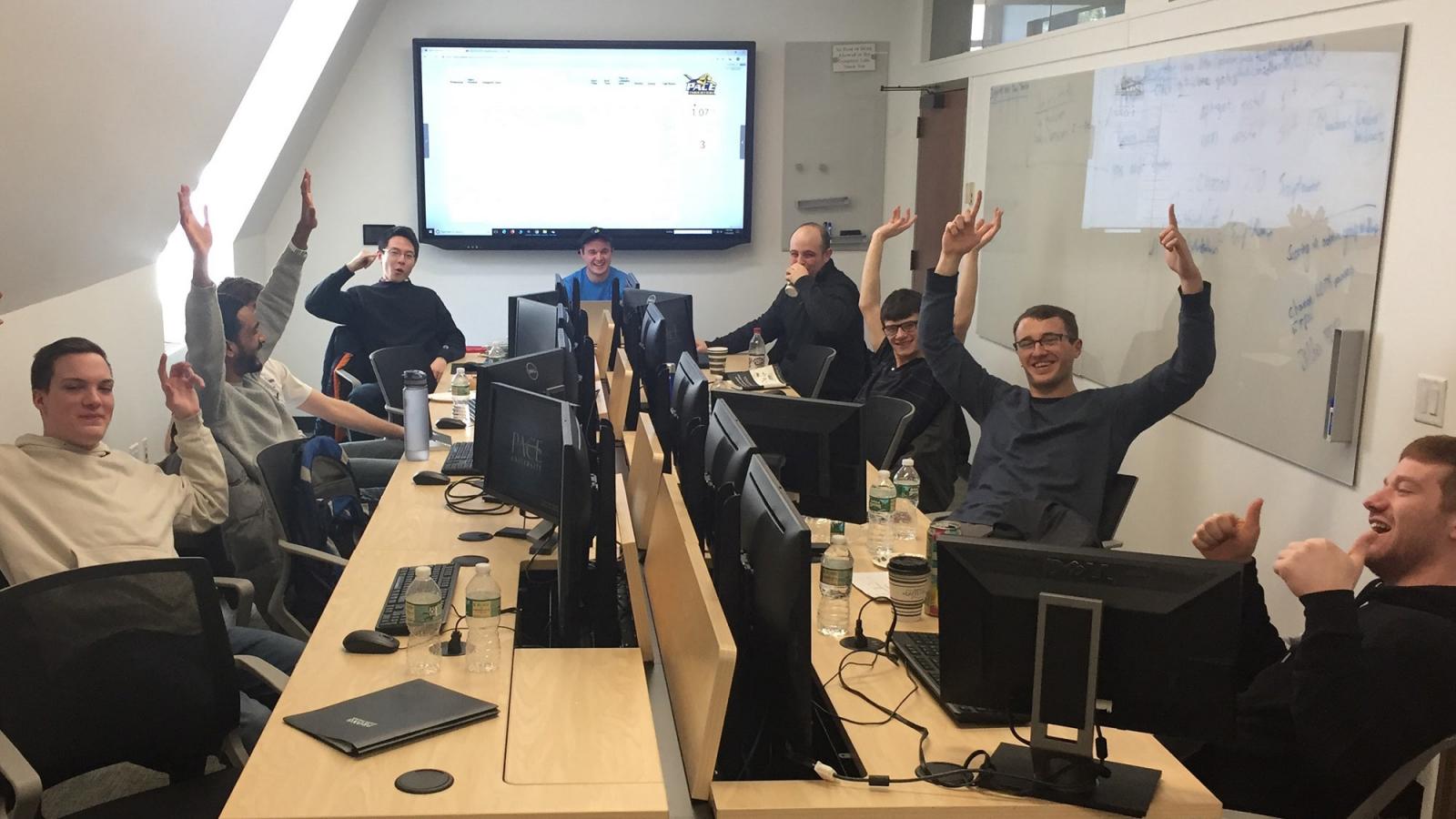
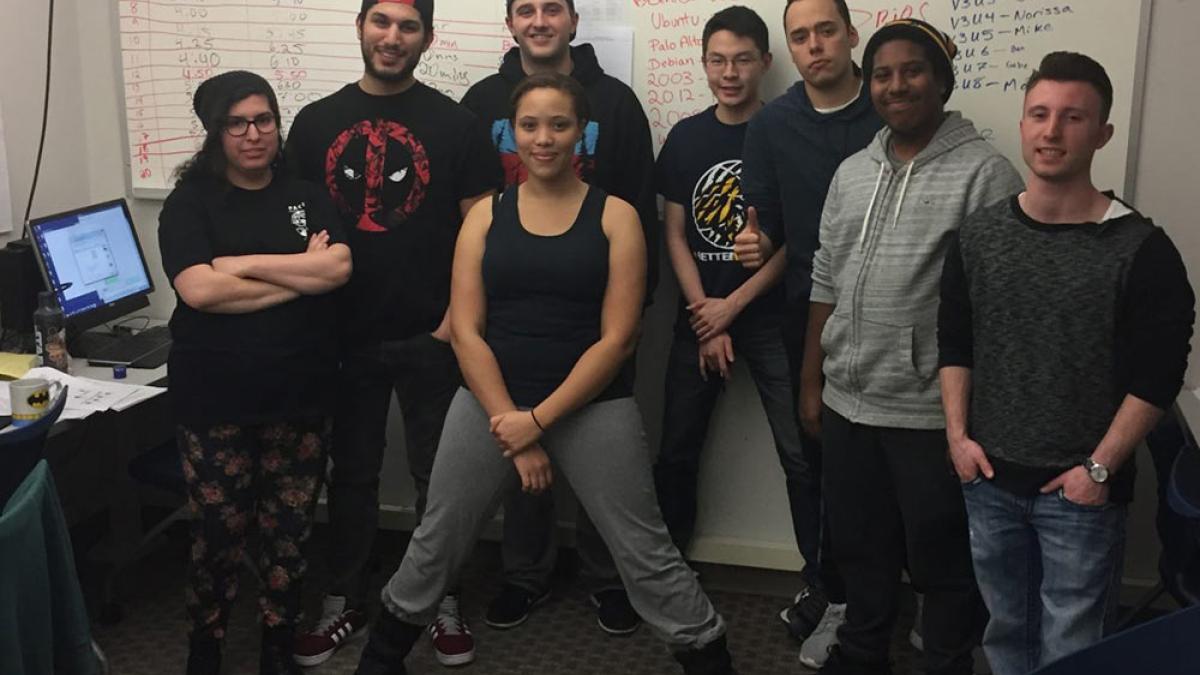
Since its inception in 1983, Pace’s Seidenberg School of Computer Science and Information Systems has positioned itself as a leader in providing the technological needs of tomorrow. As ever-evolving, ever-complex cybercrime poses an increasingly major threat on the infrastructure of our interconnected world, Seidenberg is focusing on empowering the next generation of cybersecurity professionals.
Recently, Seidenberg was the recipient of a major $3.8 million grant from the National Science Foundation to do just that. The award, which will span five years, will enable Pace to expand its Cybercorps® Scholarship for Service (SFS) program, which trains scholars at all levels for careers in government focusing on cybersecurity and cyber defense.
Funding from the grant will be dedicated to scholarships, workshops, competitions, and other activities—enabling students to engage in the necessary training, research, and skill-building that will help them solve the increasingly difficult cybersecurity issues that professionals in the field face today. The award will also seek to increase representation of diverse and historically underrepresented communities in cybersecurity fields through preparation for careers in cybersecurity working for the federal government.
“Because of our expertise, location, and track record, Pace University is uniquely positioned and equipped to deliver on this need—now and for years to come. We are grateful to the National Science Foundation for its continued partnership and support.”
“There is an immense need and demand for cybersecurity experts in our country,” said Li-Chiou Chen, PhD, who manages the CyberCorps® Scholarship for Service and CySP programs at Pace. “Because of our expertise, location, and track record, Pace University is uniquely positioned and equipped to deliver on this need—now and for years to come. We are grateful to the National Science Foundation for its continued partnership and support.”
Through the grant, Chen, along with her colleagues which include Seidenberg’s Andreea Cotoranu, D. Paul Benjamin, PhD, Darren Hayes, PhD, Dyson’s Joseph Ryan, PhD, and Westchester Community College’s John Watkins, will work with cybersecurity scholars on research projects in fields including—but not limited to—data analytics, machine learning, computer forensics, and robotics. These diverse opportunities will allow future scholars to receive a well-rounded education and develop further expertise in their chosen field as they prepare to enter the workforce.
“We are grateful for all of the hard-work and dedication of Professor Li-Chiou Chen,” said Dean Jonathan Hill. “As a true innovator in the field, she is helping to ensure that we effectively train and educate a new generation of cyber leaders.”
While there is much hard work ahead for Pace’s aspiring cybersecurity professionals, the opportunities afforded by this grant will allow each student to strive for true excellence in a field that, quite literally, the world depends on.
More from Pace Magazine
Rhonda Miller, head of Pace’s BFA in Commercial Dance, wanted to build a different kind of dance program. “I wanted it to be relevant and useful—to include all forms of dance and the practical business skills dancers need but so often don’t have. We’re giving students the tools they need to navigate show business and make a living in dance.”
For 12 years, Pace has been supporting neurodiverse students and students on the autism spectrum through its Ongoing Academic Social Instructional Support (OASIS) program. This year, through initiatives from the President and Provost’s offices, OASIS has expanded its services to the Pace Community in Westchester.
Dyson Biology Professor Melissa Grigione, PhD, has spent her career traveling all around the world to better understand a wide range of animal populations. She's now passing on what she's learned to the next generation.
Haub Law Hosts Wellbeing Fair, Adopting Global Charter for Wellness
The Elisabeth Haub School of Law at Pace University held a Wellbeing Fair this week bringing together students, faculty, and staff to promote wellness through a variety of related activities and resources.
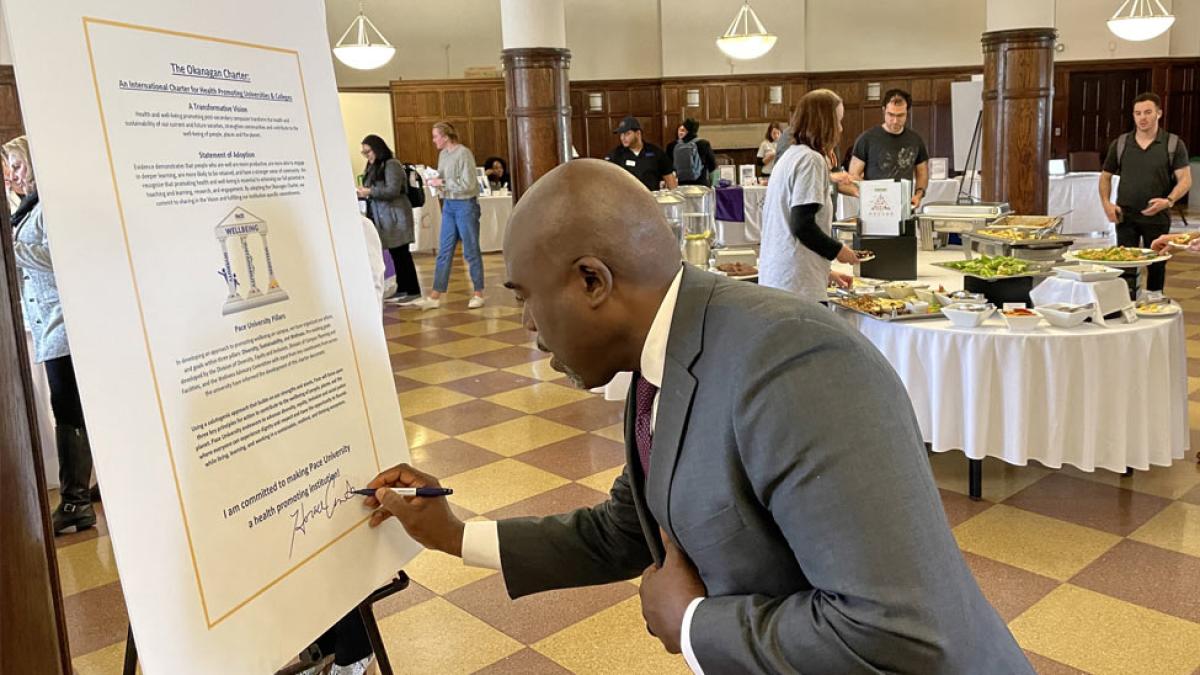
The Elisabeth Haub School of Law at Pace University held a Wellbeing Fair this week bringing together students, faculty, and staff to promote wellness through a variety of related activities and resources. More than 15 tables, including many staffed by community partners, healthcare providers, members of the legal community, and on-campus departments, joined the Wellbeing Fair and provided a wealth of helpful information and resources, including recipes, samples and tips for healthy eating, education on drug prevention/intervention, blood pressure and BMI screenings, opportunities for art expression and more.
The event was part of a University-wide initiative that included the adoption of the Okanagan Charter, an international framework for promoting wellness on campuses globally which was signed into effect at the Law School by Dean Horace Anderson.
The Okanagan Charter has two calls to action: to embed health into all aspects of campus culture, across the administration, operations, and academic mandates; and to lead health promotion action and collaboration locally and globally. Created in June 2015, the Charter provides institutions with a common language, principles, and framework to become health and wellbeing promoting campuses.
“Wellbeing is so important, in particular for law students and lawyers,” said Dean Anderson. “At Haub Law, we are committed to supporting our students’ mental, physical and overall wellbeing, and helping them learn how to balance the demands of school, life and careers early on. The Wellbeing Fair was a great experience for our community and a chance to recharge.”
To fulfill its goals for student wellness, last year Haub Law launched a Wellness Project which includes an ongoing series of programming and campus initiatives incorporating the eight pillars of wellness: mental and emotional, social, intellectual, financial, spiritual, physical, occupational, and environmental. The Wellbeing Fair is part of this initiative and the Law School is also planning to open a Wellness Center this Spring which will house a space for additional wellness programming.
The Wellness Fair was organized by the law school’s Office of Student and Campus Affairs. Special thanks to the many Pace departments and programs who supported the event at Haub Law, in addition to many community partners including the WWBA, WCBA, the NYCBA Lawyer Assistance Program, Dorf & Nelson LLP, the ChIPs Network, Artist Geoffrey Stein, Planet Fitness, White Plains Hospital, St. Vincent’s Hospital, and Northwell Health.
Elisabeth Haub School of Law Faculty and Alumni Rank Among the 2023 Lawdragon Green 500: Leaders in Environmental Law
The Elisabeth Haub School of Law at Pace University is proud to announce that Karl Coplan, Professor of Law Emeritus and Director of Pace Environmental Litigation Clinic at Haub Law, along with Achinthi Vithanage, Associate Director of Environmental Law Programs & Professor at Haub Law, were named to the 2023 Lawdragon Green 500: Leaders in Environmental Law.
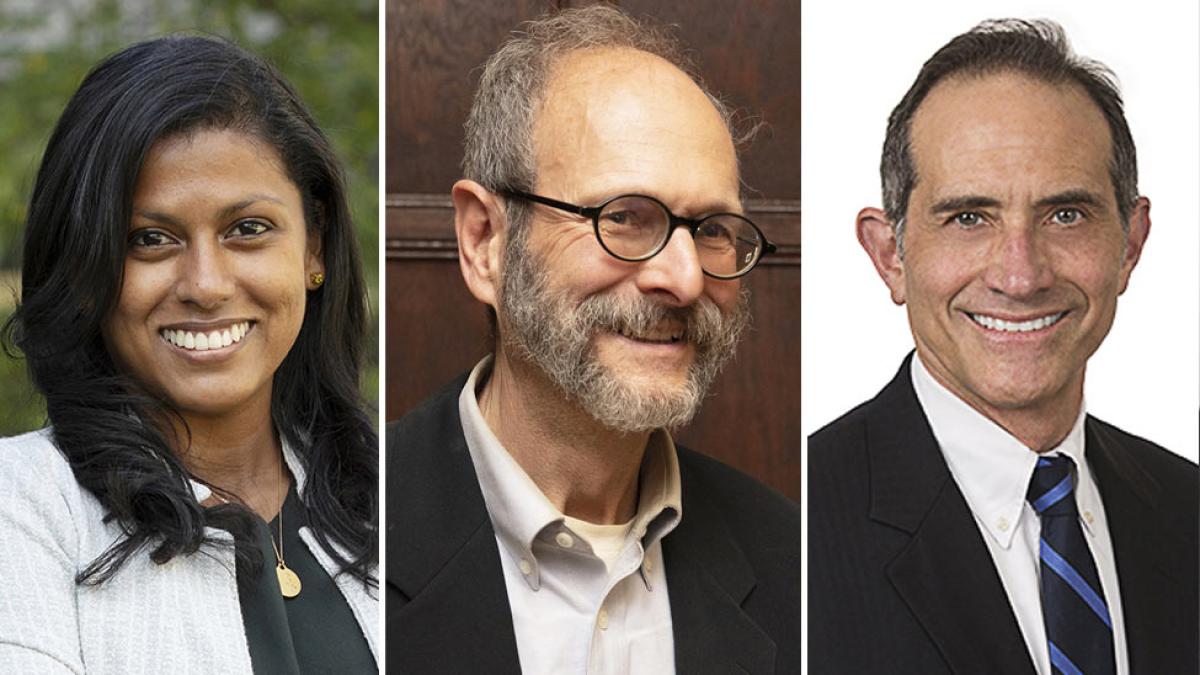
The Elisabeth Haub School of Law at Pace University is proud to announce that Karl Coplan, Professor of Law Emeritus and Director of Pace Environmental Litigation Clinic at Haub Law, along with Achinthi Vithanage, Associate Director of Environmental Law Programs & Professor at Haub Law, were named to the 2023 Lawdragon Green 500: Leaders in Environmental Law. Haub Law Adjunct Professor Steven Solow, Partner, Baker Botts, former Director of the Pace Environmental Litigation Clinic and founder of the DC Summer Externship Program at Haub Law was also recognized.
The prestigious list is comprised of 500 lawyers carefully selected and based on journalistic reporting, nominations, and vetting with peers and experts in environmental law. Also included on the list are Haub Law alumni, Anne Carpenter ’09, Partner, Baker Botts, Samuel Brown ‘07, Partner, Hunton Andrews Kurth, and James May ’91 (LLM), Distinguished Professor of Law, Founder of the Global Environmental Rights Institute, and co-Founder and co-Director of the Dignity Rights Project and the Environmental Rights Institute at Widener University Delaware Law School and current Haub Visiting Scholar at Haub Law.
“We are so proud of the impact that Karl, Achinthi, Steve and our distinguished graduates continue to have on the field of environmental law and congratulate them on this recognition,” said Dean Horace E. Anderson Jr., Dean of the Law School. “As the #1 ranked environmental law program, Haub Law remains committed to advancing environmental law and policies that lead us toward a greener future with the bold leadership of our past and present faculty, alumni, and colleagues.”
The 2023 Lawdragon Green 500 list also included other Haub Law affiliates, including: Former Director of Haub Law’s Environmental Law Program, Alexandra Dapolito Dunn, Partner, Baker Botts, and 2021 Haub Law Environmental Law Distinguished Junior Scholar and 2022 Lloyd. K Garrison Lecturer on Environmental Law, Sharmila Murthy, Senior Counsel in the White House Council on Environmental Quality.
Love @HaubLaw
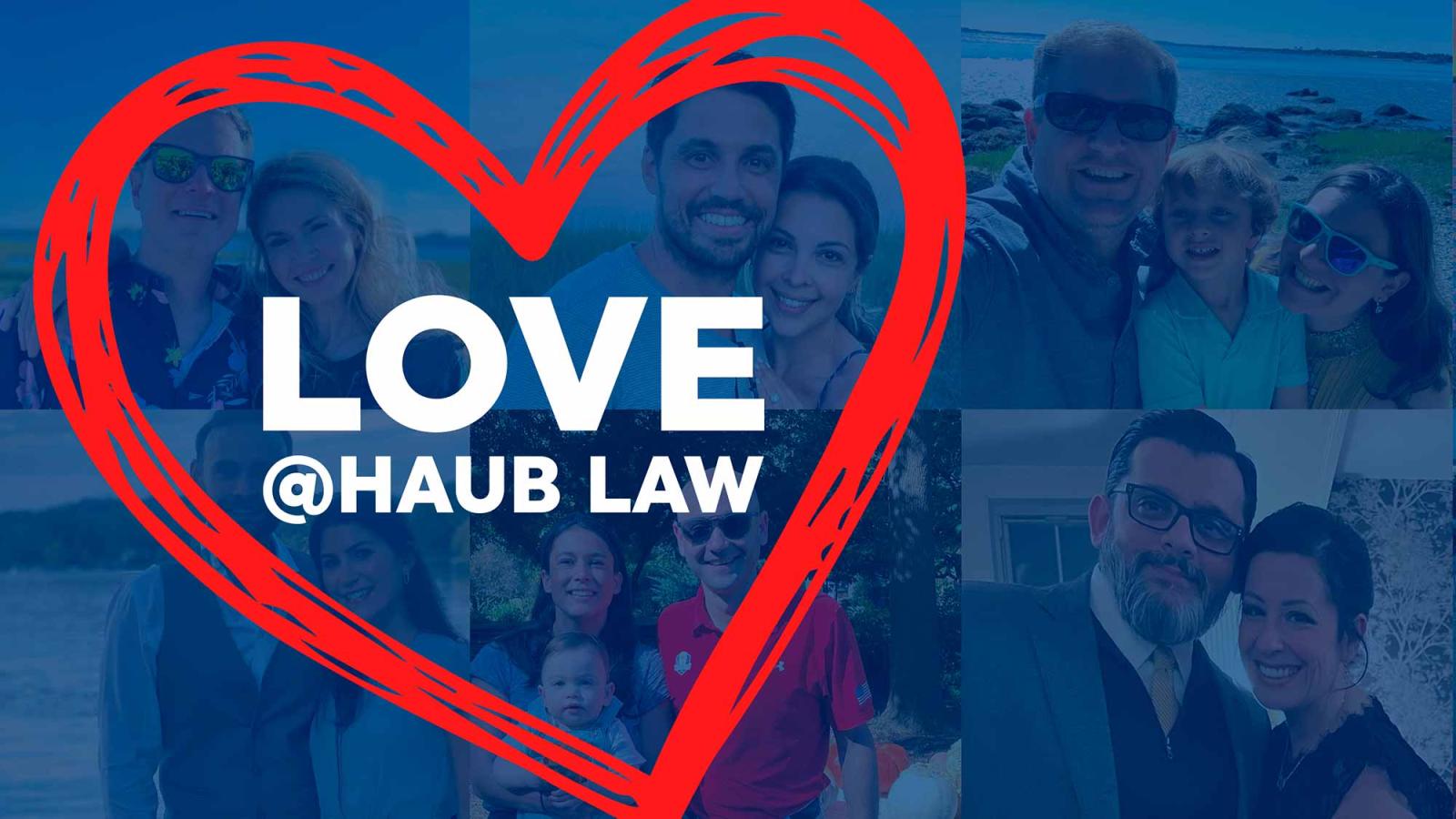
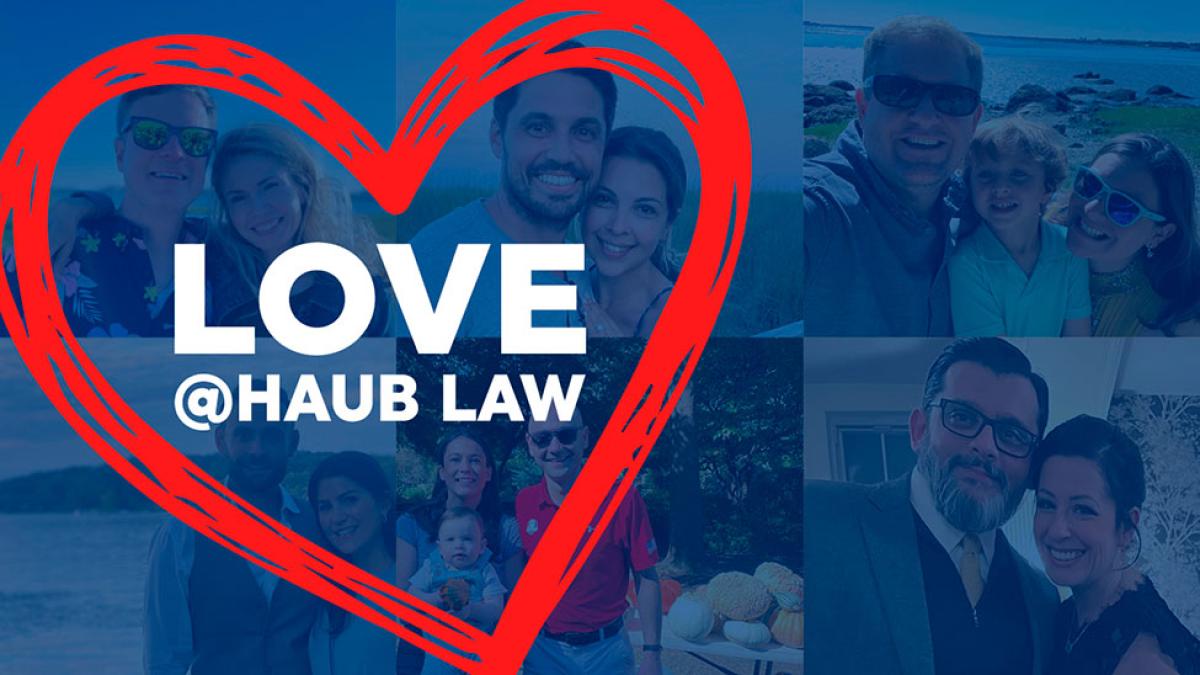
Alumni Love Stories
In a 1L class, outside of the library, in the halls of Dannat, in student organizations, or through mutual law school friends – these alumni hit it off during their time at Haub Law and the rest is history. We asked them to briefly tell us their Haub Law love stories here. If you want to share how you found Love at Haub Law please email Jessica Dubuss, Executive Director of Communications, at jdubuss2@law.pace.edu.
Love @HaubLaw: Meghan and Paul Dibbini ‘19

Love was in the air during Meghan and Paul Dibbini’s 1L civil procedure class at Haub Law. Meghan recalls, “Paul happened to sit in front of me in our first Monday morning 9:00 a.m. class – civil procedure with Professor Simon. Professor Simon had a “sign-in sheet” for attendance, and any time Paul handed me the sign-in sheet, he would be sure to fully turn around, grab my attention, and strike up a conversation if he could. We began getting to know each other as friends, became part of the same study group, and the rest is history!” A few short years after graduating from Haub Law, Meghan and Paul were married with numerous Haub Law alumni in attendance at their wedding.
Meghan had always dreamed of becoming a lawyer since elementary school. “Becoming a lawyer always stood out to me as a prestigious profession and one that would keep me on my toes and challenge me,” said Meghan. “Haub Law has a prominent location – close to NYC, but in Westchester where I knew I would be able to eventually settle down and make great connections. My time at Haub Law was wonderful and really set me up for success as a lawyer after graduating.” Paul, a double degree Pace University graduate, received his undergraduate degree from Pace as well as his law degree. “I had a positive experience as an undergraduate at Pace and was confident the same would be true if I attended law school at Pace,” said Paul. “Fortunately, I was right and not only did I receive a top-tier legal education, but I also met Meghan.”
Today, Meghan is senior counsel at Wood Smith Henning & Berman LLP and Paul is an attorney with Cassin & Cassin LLP.
Okanagan Charter Signing
News12
The Charter has two Calls to Action for higher education institutions:
1. Embed health into all aspects of campus culture, across the administration,
operations and academic mandates.
2. Lead health promotion action and collaboration locally and globally
Pace University’s Newest Fashion Publication: An Interview with ‘Fusion’ Magazine
Have you heard of Fusion Magazine? Well, I have, and I need to tell you about it. Over this past weekend, I had the pleasure of interviewing with Savianah Persaud, a fellow Pace University student, to get the inside scoop on Fusion. Savianah is currently a junior at Pace University with a major in business management and a minor in fashion marketing. During the meeting, I could totally feel the excitement and passion that Savianah has for both the magazine and fashion as well.
Law Schools With The Most Competitive Students v. Law Schools With The Best Quality Of Life (2023)
Without further ado, these are the law schools with the most competitive students, per Princeton Review:
6. Pace University Elisabeth Haub School of Law
Buffalo Residents Suing City for Not Fluoridating Water
Pace University Haub Law Professor Nicholas Robinson says it could work, “You know it's not implausible for them to make this claim because no one has defined what a helpful environment means in the context of the oral health and well-being of your teeth.”
Connecticut 2nd Worst State To Start A Business: New Report
Bruce Bachenheimer, clinical professor of management at Pace University, told WalletHub that, "Simply cutting some red tape and offering certain tax incentives is not enough. Without the right mix of government incentives and business opportunities, it is a bit like building a stool with a missing leg. Each state must work hard to recognize its unique strengths and weaknesses, and then carefully construct policies that genuinely benefit a new business."



